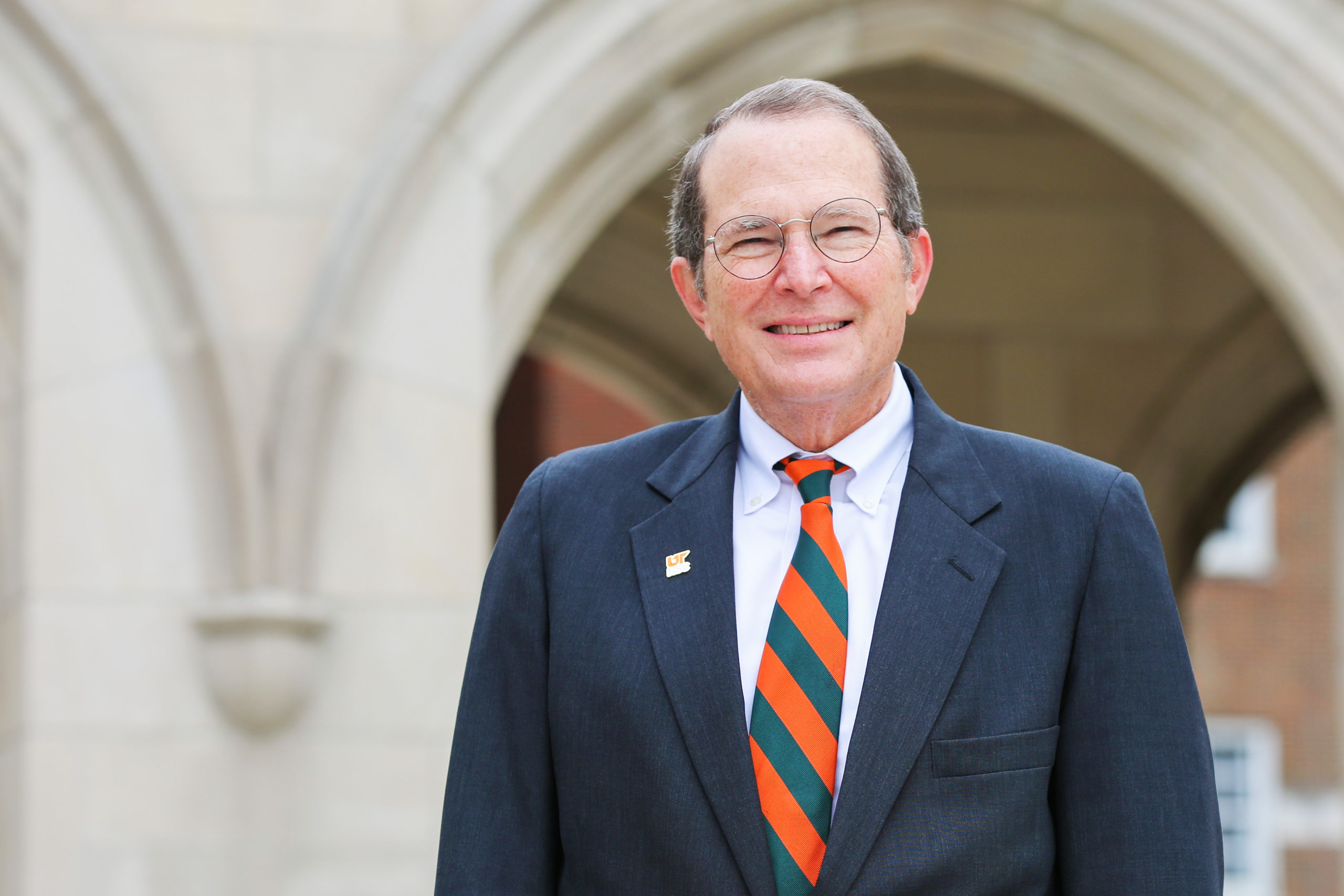
MEMPHIS— University of Tennessee Health Science Center Chancellor Steve Schwab announced today that he plans to retire.
The University of Tennessee System will launch a search for Schwab’s replacement in the coming weeks. He will continue to serve as chancellor until June 30, 2022, or until a successor is on board.
“It has been my honor work beside Chancellor Schwab these past few years,” UT President Randy Boyd said. “He had to be a brilliant doctor and researcher to earn his position, and he obviously is both of those. But in the role, he has proven to also be a great strategist and great leader. He is always honest and direct, has bold vision, and gets things done. The UT family, our OneUT, will always owe a tremendous debt of gratitude to Steve for all he has done for each of us, for UT and our state.”
Schwab has been with the UT Health Science Center for 15 years, serving chancellor since 2010. Prior to that, he served as executive dean for the UT Health Science Center’s College of Medicine.
“It has been a pleasure and an honor to serve as UTHSC chancellor,” Schwab said. “I am pleased by the progress we have made in these 12 years and I look forward to even greater progress going forward.”
Schwab is a graduate of the University of Missouri School of Medicine and completed his internship/residency in internal medicine at the University of Kansas Hospitals and Clinics, followed by a fellowship in nephrology with Washington University at the Barnes Hospital. He spent 18 years on the faculty at Duke University, where he rose to become professor and vice chair of the Department of Medicine. In 2003, he was named Regents Professor and chair of the Department of Medicine at the Medical College of Georgia, later being named chief clinical officer.
Under Schwab’s leadership, UTHSC:
- Expanded clinical partnerships across the state, creating an integrated statewide UTHSC organization of four campuses (Memphis, Nashville, Chattanooga, Knoxville) with shared educational, clinical and research activities.
- Transformed the Memphis campus. Driven by the Campus Master Plan, which Executive Vice Chancellor Ken Brown leads, UTHSC has accomplished more than $300 million in construction. Among major additions to the campus are: the Translational Science Research Building, the Center for Health Care Improvement and Patient Simulation, the renovated Historic Quadrangle at the heart of the campus, the ongoing construction on the Delta Dental Building, the Pharmacy Building and the Cancer Research Building.
- Moved the university toward top-quartile performance in academics, growing the education enterprise to more than 3,300 students and 1,400 residents and fellows, at the same time achieving graduation rates at approximately 95% and overall first-attempt board pass rates at 95% or higher.
- Raised the research enterprise. UTHSC has doubled its grant awards, with a projected total for awards of more than $120 million this academic year. At the same time, UTHSC has more than doubled sponsored program revenue (non-clinical, all-source grants and contracts) to more the $300 million annually.
- More than tripled its clinical enterprise with the development of faculty practice plans throughout the state, generating more than $300 million in clinical revenue.
- Stood as a health care leader in the state during the global pandemic.
The UT System has hired Witt Keiffer to conduct a search for the next chancellor of UTHSC. The firm’s team will work in coordination with UT’s in-house executive recruiter and search committee representing faculty, staff, students and alumni.
The University of Tennessee is a statewide system of higher education with campuses in Knoxville, Chattanooga, Martin and Memphis; the UT Space Institute in Tullahoma; the UT Institute of Agriculture with a presence in every Tennessee county; and the statewide Institute for Public Service. The UT system manages Oak Ridge National Laboratory through its UT-Battelle partnership; enrolls about 50,000 students statewide; produces about 11,000 new graduates every year; and represents more than 400,000 alumni around the world.
Tags: Featured, Steve Schwab, UT Health Science Center